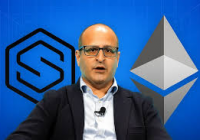Olivier Guersent, outgoing director general of the European Commission’s competition unit, warns that the once-overlooked practice of “acquihires” is set for closer antitrust scrutiny by the EU.
In these deals, technology giants hire a start-up’s founders and key managers, rather than buying the whole company, to sidestep merger rules.
The EU will no longer ignore Big Tech moves
Guersent, who retires this Thursday after 33 years tackling antitrust , cartels and financial-services regulation, says Brussels can no longer turn a blind eye.
Under the EU’s framework , only transactions above a certain size trigger automatic review. To catch smaller talent raids, the Commission is imploring member-state authorities in Denmark, Hungary, Ireland, Italy, Sweden, Slovenia, Lithuania and Latvia to use their “call-in” powers. These allow national regulators to refer below-threshold deals to Brussels for investigation.
“We need to be patient and have enough member states that have call-in provisions and use them,” Guersent told reporters, adding that the European Competition Network is being urged to step up co-operation.
“It is important to preserve effective competition,” Guersent says, arguing that a company’s workforce should count as an asset in any merger assessment.
Recent high-profile examples underline his point – Microsoft’s US$650 million agreement to hire nearly all of AI start-up Inflection’s staff, Google’s recruitment of Character.AI’s founders, and the search giant’s swoop on AI code-generation firm Windsurf , each transaction saw key talent poached without full corporate takeovers.
On the other side of the Atlantic, Big Tech’s acquihire trend shows no sign of receding. When OpenAI’s planned US$3 billion acquisition of Windsurf fell through, Google stepped in to hire the start-up’s CEO, Varun Mohan, and senior engineers, licensing the company’s code while leaving its remaining employees in limbo.
Observers note the familiar script – founders and investors walk away with hefty terms, but rank-and-file staff are often left empty-handed.
Is the US also taking hints from the EU on tech deals?
US authorities have joined the fray. The Federal Trade Commission and Department of Justice are probing whether Alphabet’s deals, such as its pact with Character.AI, violate antitrust laws.
In June last year, the FTC reportedly raised questions about whether Microsoft’s $650 million deal with Inflection constituted a formal acquisition, made without regulatory approval. According to Investopedia , this also came as the Commission and the Department of Justice (DOJ) were also reportedly set to open antitrust investigations into Microsoft, OpenAI and Nvidia .
Now, in Europe, Guersent says success with the new Digital Markets Act proves that fresh rules can move the needle.
“It made a difference in fields in which decades of antitrust enforcement have not managed to make a difference.”
Guersent.
Yet he concedes impact remains partial: “Did it change everything as much as we would have liked? Probably not.”
However, proponents of acquihires argue the model offers a lifeline for start-ups that might otherwise struggle, giving founders lucrative exits and instant scale through major platforms.
But critics fear it concentrates AI prowess within a handful of giant firms, eroding the competitive dynamism that has long defined Silicon Valley. John F. Coyle , a law professor at the University of North Carolina, suggests that Amazon’s recruitment of Adept’s co-founders was “clearly a move to avoid antitrust problems,” yet the practice also reshapes who benefits from breakthroughs.
As the AI arms race accelerates, the battle over acquihires will test whether regulators can balance talent mobility with fair competition. If national and EU enforcers succeed in reclassifying these hires as mergers, tech giants may rethink their playbooks or face more traditional review processes.
For employees, investors and policy makers alike, the outcome will help determine whether innovation remains broadly distributed—or concentrated in ever-fewer hands.
Cryptopolitan Academy: Want to grow your money in 2025? Learn how to do it with DeFi in our upcoming webclass. Save Your Spot



